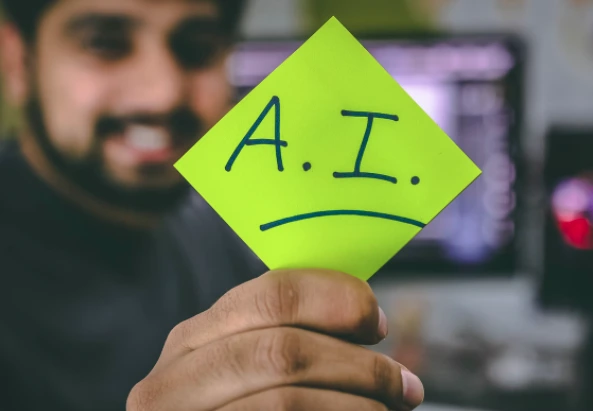If you still think AI is all about the rise of machines, dismiss that old-fashioned thinking. In fact, it’s like any other technology that makes our lives easier and better.
Today 37% of businesses and organizations employ AI in their workflows. This shows that many understand its value, and most likely realize that the future is impossible without AI.

Modern technology is useful for medicine, logistics, retail, construction, IT, education, etc. But even for small businesses, AI is an irreplaceable assistant. Check how exactly you can engage artificial intelligence in your company.
Use AI to recruit employees
Artificial intelligence levels up the battle for top talents. While recruiters used to manually go through thousands of resume pages, AI now makes the process simple and streamlined.
Using AI, you can learn how to attract a specific candidate, find clues and detailed information about work experience and suitability for a specific task.
Moreover, AI helps in the re-engagement process for target groups of candidates to determine their interest in positions.
And after a candidate accepts a job offer, AI can introduce your new hires into the company’s culture, processes and policies, provide effective adaptation and socialization, and answer general questions based on your current onboarding programs.
Employ AI to collect and analyze data
According to the Grid Dynamics company, AI is indispensable for companies that have access to a large amount of consumer data and want to draw useful insights from a tiny amount of information.
Smart algorithms help track customer preferences and habits, which triggers the company to improve its products and services.
Delegate routine tasks to AI
Many people think that AI will replace humans in the workplace, but it makes more sense to think of AI as a technology that takes on some tasks. For example, basic accounting, planning, and other daily tasks.
Given that a small business has a limited number of employees, the transfer of labor-intensive or monkey-job tasks to artificial intelligence will help to use human resources more efficiently.
By the way, AI helps to eliminate the human factor in work. No matter how hard-working your employees are, they can make a mistake at any time. This is influenced by dozens of factors that you cannot predict and eliminate.
This is not typical of artificial intelligence: it has no emotions and feelings. There is only data, functions, and technology. Sometimes stability is crucial, and in this, AI wins over humans.
Develop chatbots to improve service
Due to the rapid development of online communication channels and more demanding than before consumers, companies must offer new methods to quickly solve customer problems.
This is where chatbots come to the rescue. Small businesses cannot afford 24/7 customer support services. On the contrary, virtual assistants are available at any time and will immediately answer questions from potential users.
Build an AI-powered marketing platform
AI is revolutionizing marketing. Small businesses used to run ads that they could afford. Today, AI can be used to find specific consumers, collect and analyze users’ data from multiple channels. And all this without the army of marketers.
By the way, AI is great at creating unusual and catchy content for ads.
Bring AI to security systems
Fraudsters can be found among consumers. Self-learning neural networks analyze customer behavior and see suspicious transactions so that you can react to them in time. The result is the absence of financial losses, system security, and user confidence.
Make predictions with AI
People want to know the future, and companies wish to have this superpower even more. AI technologies are capable of processing large amounts of data, identifying patterns, and making predictions.
Most often, algorithms are useful for stores and e-commerce platforms. The system analyzes the similarities between buyers and products to make quality recommendations.
Artificial intelligence performs well in forecasting due to its self-learning ability. Unlike traditional types of forecasting, predictive analytics can easily adapt to changes in behavior.
Wrapping up
Whatever our future is, artificial intelligence will become a part of it. More machine learning startups and mobile apps will emerge.
According to statistics, the global AI market value is expected to reach $267 billion by 2027. A smart algorithm will eliminate 85 million jobs and create 97 million new ones by 2025.
All this shows that a business must learn how to use its capabilities for itself and its customers. Don’t waste your opportunity to reach the top of your niche with smart technology. And never think of AI as a competitor.

